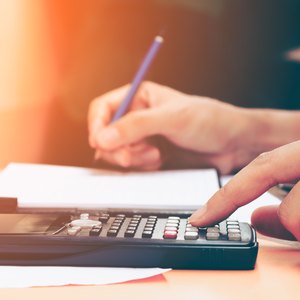
You can start a business the day after you file for bankruptcy or after the bankruptcy has been completed. The bankruptcy court realizes that you have to continue making a living during your bankruptcy — and that may mean starting a business or engaging in other self-employment. However, you may be required to gain the court's permission to take on more debt if you need loans to start your company.
Tips
There are no laws to stop an individual from starting a business immediately after a bankruptcy.
Business Debt
A bankruptcy court is unlikely to approve a request for taking on significant debt — several thousand dollars or more — to start a new business. After all, the bankruptcy filing shows you need help managing debt and credit, and the last thing the court wants is for you to pile on more debt while trying to eliminate your current obligations. You're required to check with the court throughout your bankruptcy before taking on debt; failing to do so could result in your bankruptcy being dismissed. A dismissal could be disastrous because all the creditors included in the bankruptcy could resume collection efforts, including, possibly, bank and wage garnishment.
Credit Approval
It's also highly unlikely that a creditor will loan you money for a business with a fresh bankruptcy on your record. All of your assets, such as your home, are tied up in the bankruptcy proceedings. That means these assets can't be pledged as collateral for a loan. You could also search for a lender that specializes in borrowers with bad credit. First Financial and Avant are two such lenders. You may pay a higher interest rate until your credit situation improves, though.
Bankruptcy Discharge
It might be smarter to wait to open a business until after your bankruptcy has been completed, or discharged. Chapter 7 bankruptcy is the simplest form of bankruptcy and can be completed in just months. Once the bankruptcy is over, you're completely free of court supervision and can take on as much credit as creditors will give you. The same is true for Chapter 13, another popular form of personal bankruptcy. However, Chapter 13 is a much longer process, as it requires a payment plan of three to five years.
Post-Bankruptcy Counseling
Federal bankruptcy laws require the completion of a formal counseling session as your bankruptcy comes to an end. Counselors strongly warn against taking on excessive debt to start a business or for any other reason. The goal is obviously to help you avoid repeating your past mistakes.
Debt-Free Business
There are lots of businesses you can start without borrowing money; this provides an option for getting started immediately after you file for bankruptcy. Consider starting a home-based business using tools you already have, such as a personal computer with internet access. Borrow small sums of money from friends and family for other things that you need, such as tools or marketing materials.
References
- First Financial: Personal Loans
- Avant: FAQs About Personal Loans
- Nolo: Starting a New Business After Bankruptcy
- U.S. Courts. "Federal Court Finder." Accessed May 18, 2020.
- U.S. Courts. "Chapter 7 Means Test Calculation." Accessed May 18, 2020.
- U.S. Dept. of Justice. "LIST OF APPROVED PROVIDERS OF PERSONAL FINANCIAL MANAGEMENT INSTRUCTIONAL COURSES (DEBTOR EDUCATION) PURSUANT TO 11 U.S.C. § 111." Accessed May 18, 2020.
Writer Bio
Robert Lee has been an entrepreneur and writer with a background in starting small businesses since 1974. He has written for various websites and for several daily and community newspapers on a wide variety of topics, including business, the Internet economy and more. He studied English in college and earned a Bachelor of Arts in liberal arts from Governor's State University.

